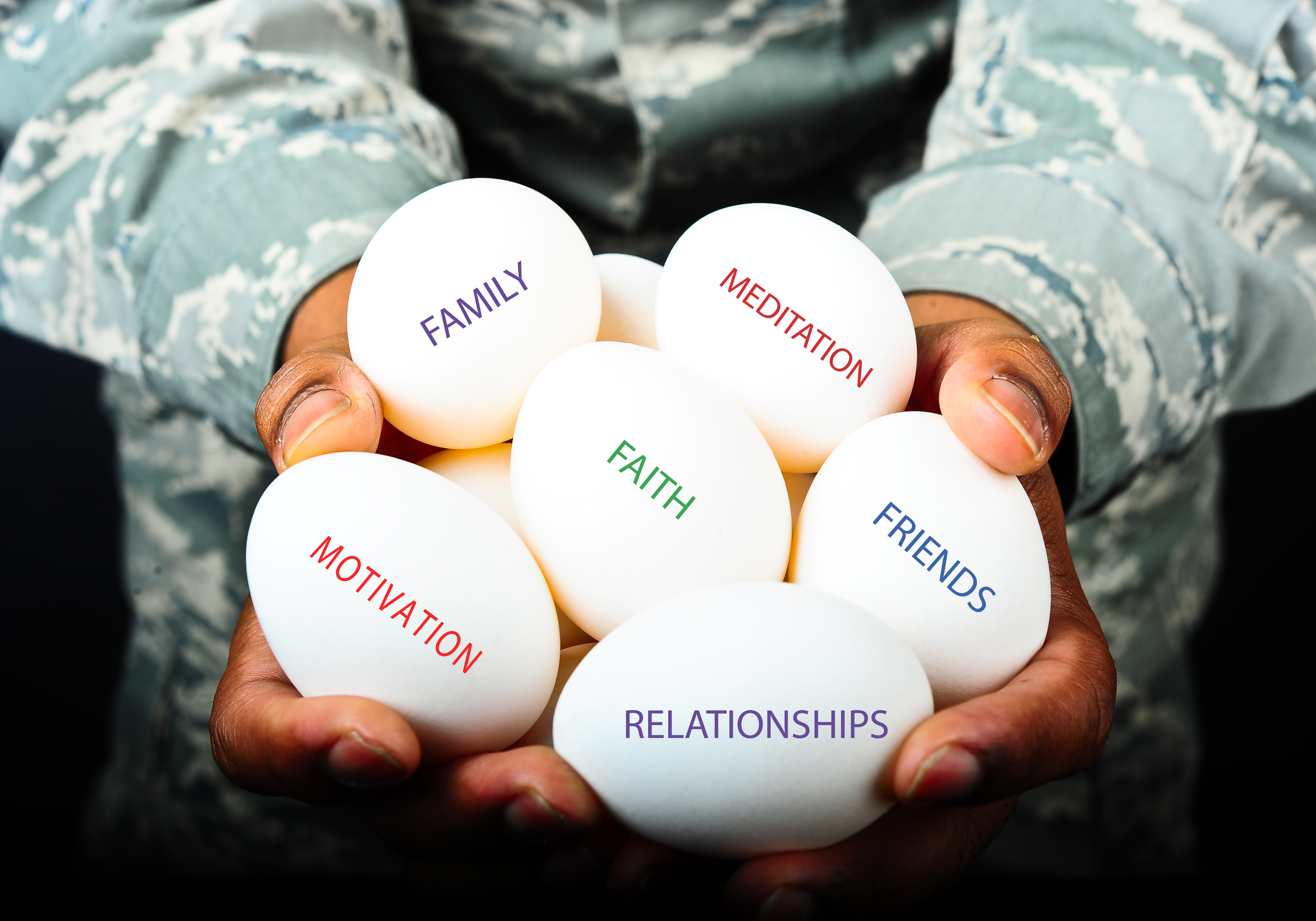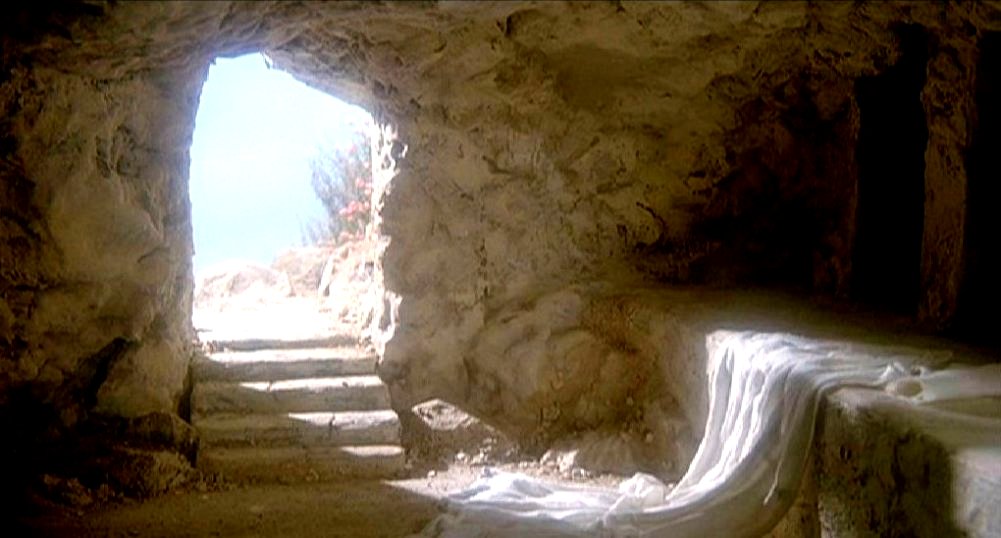What did the early Church believe and how do we recapture that spirit
4 Dimensions of Spiritual Resilience
Part of the training system used by the military is resiliency training. The ability to recover quickly from one mission to another is extremely important in the modern military. Just as important as it si to the military, spiritual resiliency is important in our lives and learning a few tips will help us recover in times of trouble or distress when our spirituality is pushed to its limit.
Resilience is defined as the ability of a substance or object to spring back into shape; elasticity and, the capacity to recover quickly from difficulties; toughness. Spiritual Resiliency is the ability to recover the emotional, psychological and the physical strength that is required to adjust to adversity or traumatic change. What all of this means is that we have the inner fortitude to bounce back from difficult experiences.
Just like we are at our best when our physical, mental, and spiritual lives are functioned properly so will our spiritual resiliency work when the four dimensions are working properly.
- Spiritual ~ We are spiritual beings, and sometimes this is separated from organized religion. I know many people who do not attend a church on a regular basis and they are as spiritual as people who do. At the heart of our wellness is our spirituality and it is our driving force towards well-being. Spirituality can be confusing at times, and I find it helpful to have a guide or someone we can talk to about our spiritual life.
- Physical ~ This is one of the most difficult dimensions for me. When things are not going well, we tend to want to curl up somewhere and do nothing. We need to fight this urge and try to push through it. Our health is maintained through physical activity. This can simply be walking around the block once a day. Eating right and having proper sleep patterns also play a large role in the physical dimension of spiritual resiliency.
- Social ~ At our core we are a social people. Although, as I said above, one can be spiritual even though they do not attend a church on a regular basis, what they miss out on is the social aspect of religion. A church that is a right fit will do far more for us than trying to do it on our own. Good relationships with family, friends, and the community will nourish us and keep us grounded.
- Emotional ~ How we manage our responses to events, joy, anger, fear, etc. can affect our state of being. Just as we are social beings we are also emotional beings and gaining and maintain control of our emotions is the goal of the spiritual life. We do not function at our best when we function from a place of emotions. This is another dimension where a guide can be helpful.
These dimensions are intertwined and inseparable. Each of the dimensions is connected to the other, and they work in unison to establish our state of being, our well-being in an integrated system.
Working to achieve and then maintain balance in our lives is an important and a challenging thing but to function well on the battlefield, the board room, or in life we need this well-being.
New Feature
For the last several years I have been sending out a daily email with the readings, from the Orthodox Lectionary, for that particular day. Starting Monday, May 4th I will be changing the daily email from just simply providing the readings to a more Bible Study or Daily Mediation, as I am calling it, form.
I have begun with the Letter of St. James and will work through that important, and often overlooked, book of Scripture. If you would like to sign up to receive this daily email, I will never sell the list to anyone for any price; click the link on the right hand side of the page.
I pray that these meditations will be just that, meditations and that they will make us think and call us to action.
It Is Well
I have the very high honor of serving as chaplain for a local fire department as well as for the military, and it is one of the most rewarding aspects of my ministry. Serving those who serve carries a huge weight of responsibility because these folks do not let people into their lives easily. For many the belief is that no one will understand what they are going through or have gone through in their lives. It is hard to explain, but the chaplain is that person that wears the same uniform but is not part of service.
Mostly the job consists of talking to people when the opportunity arises, this is called the ministry of presence. Whether it is on the scene of a fire, the rifle range or out in the woods the chaplain circulates and just talks to people. The chaplain is also called in after traumatic incidents like the death of a fellow soldier or firefighter or even a traumatic rescue. The resulting stress from these incidents builds up over time and can manifest itself is bad ways if not dealt with immediate.
By and large both groups that I work with are very spiritual in some rather nontraditional ways. This was a steep learning curve for me coming from the traditional go to church model of spirituality, but I have come to learn that, although I still believe in the need for the communal aspect of church, sometimes it is not necessary. Many times after a traumatic incident, I will get the inevitable question, “why would God let this happen?”
Usually in situations where I am going to face “the question” as I like to call it, I am praying that they will not ask it because I really don’t have an answer or one that I feel comfortable with. Usually, these are battle hardened guys, and gals, who have taken the risk of opening up to me to share what is inside of them. For the most part, they are very private and don’t like to share their intimate thoughts and feelings with anyone but sometimes a crack emerges and slowly move in.
So you might be asking yourself, what is the answer? Well, you will have to read on.
I will be honest and say that I too struggle with the answer to this question. In my short years of ministry, I have been witness to some pretty horrific incidents that stay with me and sometimes haunt my dreams, and I have often asked this question myself.
This past weekend the country of Nepal was rocked by the worst earthquake in that small nation’s history. I am sure there will be more deaths but as of this writing, the death toll stands at 2,500 people. It is not uncommon for even the most spiritual among us to look at an event such as this and ask, “why would God allow this to happen?” My usual response is God does not let it nor does he prevent it from happening it just happens. Sure I like to think that God is in control but is God truly in control and control of all aspects of life? If God allowed this to happen wouldn’t God then be some crazed tyrant bent on destruction? How does this jive with the God who gave His only Son for us? Well, it doesn’t.
All of my theological education has not prepared me to answer this question. I have searched the books and have not been able to find anyone who can simply answer the question. Then the answer came to me from a police officer teaching the classes I was in, and it is by far the best answer I can come up with. “God never said you would not suffer, He did say you would not suffer alone.” I am not sure about you, but I find great comfort in those words.
The other night I was clicking around the internet, and I came across the old Gospel song, It Is Well with My Soul. This is a great song of comfort and peace reminds me that peace of soul, not the peace of mind is the goal. If my soul is at peace the rest will follow: When peace, like a river, attendeth my way, when sorrows like sea billows roll; Whatever my lot, Thou hast taught me to say, it is well, it is well with my soul. God never promised that we would not suffer what He did promise what that we would not suffer alone!
Chosen to Serve
Since Easter, each day, we have been reading from the book of Acts. I have said before that it is called the book of Acts, or Actions, not the book of sitting around waiting for something to happen. Acts is a wonderful book on how the early church was organized and many of the principles outlined are very applicable to the Church today.
This week the focus was on the sixth chapter and the first seven verses.
IN THOSE DAYS, when the disciples were increasing in number, the Hellenists murmured against the Hebrews because their widows were neglected in the daily distribution. And the twelve summoned the body of the disciples and said, “it is not right that we should give up preaching the word of God to serve tables. Therefore, brethren, pick out from among you seven men of good repute, full of the Spirit and of wisdom, whom we may appoint to this duty. But we will devote ourselves to prayer and to the ministry of the word.” And what they said pleased the whole multitude, and they chose Stephen, a man full of faith and of the Holy Spirit, and Philip, and Prochoros, and Nicanor, and Timon, and Parmenas, and Nicolaos, a proselyte of Antioch. These they set before the apostles, and they prayed and laid their hands upon them. And the word of God increased; and the number of the disciples multiplied greatly in Jerusalem, and a great many of the priests were obedient to the faith.
In the Jewish-Christian Community in Jerusalem there were two distinct groups of people. There were the Aramaic speaking Jews from Jerusalem and Palestine. These were the descendants of the ancestral inhabitants of the land and prided themselves that there was no foreign mixture in their lives. Then there were the Jews from other places in the world who had been away from Palestine for generations and had forgotten their Hebrew and only spoke Greek. These are the two groups we see in the story today.
It appears that the Aramaic speaking Jews looked down upon their Greek-speaking brothers and sisters, and this was affecting the distribution of alms to the needy and so a conflict arose in the Church. The Jews had a great sense of responsibility for the less fortunate among them and had a program to assist them in their need.
The custom was for two collectors to be sent out from the synagogue on Friday to the markets and private homes to take up a collection for goods, but mostly money, to assist those less fortunate in the community. Later the goods collected would be distributed. Those who were temporarily in need received enough to support themselves temporarily, and those permanently unable to support themselves would receive enough for fourteen meals or two per day. It is clear from this pericope that the Christian Church (if it can be called that) had taken over this process.
The twelve (that would be the Apostles) gathered the entire community together and said that their role was the Word of God and that they could not leave that responsibility to serve at table. At first glance, this looks a little uppity if you are it makes sense, the minister cannot do everything and do it well. There need to be clear lines of responsibility in the Church. So they asked the community to select from among themselves “seven men of good repute, full of the Spirit and of wisdom, whom we may appoint to this duty” The community did as directed and thus was born the ministry of the deacon, service.
What is important to recognize is that although the numbers were increasing every day since this conflict had arisen this had slowed down. Conflict in a community is deadly for the spiritual health and growth of that community. Once the deacons were appointed and began their ministry “the word of God increased, and the number of the disciples multiplied greatly in Jerusalem.” Once the ministry was established, and clear lines of responsibility were drawn, the Church began to function well, and people were attracted to the message of the Apostles.
Dealing with conflict when it arises is never easy, and it took the leadership, the Apostles, to resolve the conflict and by all accounts they did it with love and understanding. The need was identified, and a solution was created to fill that need and then the Church grew. It seems that is the solution to many issues in the Church today. Leadership needs to lead!
Christ is Risen! Now What?
For me, the day after Easter is a lot like the day after Christmas, lots to clean up. Our modern culture tends to treat these big holidays as one-day events and once it is over we move on to the next thing. This year was especially difficult for Orthodox Christians as our Easter came a week after the rest of the world. One good point, however, we got the candy on sale while the rest of you had to pay full price!
The challenge is how do we keep the spirit of the risen Christ alive during the Easter Season, which ends with the Ascension, and further, how do we keep it alive all year long? Our Church, like most, was somewhat empty the Sunday after Easter. Those who come for Easter have all gone back to the more important things in their lives, and the “regulars” remain in the Church. It sort of feels like what it must have been like for the Apostles after the Crucifixion. One day there were crowds of people shouting Hosanna and the next it was just the eleven, and some other, hiding in fear in the Upper Room.
So now that we have sung Christ is Risen. Now that we have picked up our Red Egg and lit our candle for another year, what do we do? I am not sure I have an answer to that question.
I do know that we have to keep that candle lit for the next 365 days; the world needs the light and we need to be the ones who bring it. On the eve of Easter, at our big service, I like to remind the assembled crowd that we are not just holding candles in our hands, but we are bringing the light out into the world. I emerge from the darkness, symbolizing the tomb and bring a single light, symbolizing Jesus, out into the crowd and call out, “come receive the light from the unwaning light!” The light that never goes out, unless we blow it out!
It is my firm belief that the Church in the book of Acts was the glorious Church. As long as they were renegades and persecuted they were doing great things. Once the church turned from being persecuted the church became the persecutors! We need that Church of Acts back! The Church has become comfortable and with that comes the belief that we do not need to bring the light out into the world because someone else will do it. Or we say, “if I bring the light someone will criticize me for being a Christian?” Perhaps we really do not wish to live lives as Christians and if we bring the light out we will be branded as hypocrites, and I believe that most of the “so-called” Christians in this world are just that hypocrites!
Sorry for being harsh but one cannot call themselves a Christian is the only time they darken the door of a Church is at Christmas and Easter! Every one of us who calls Jesus Lord (and if you claim to be a Christians then you have too) had better be prepared to die for Jesus, be arrested for Jesus, and, yes, even live for Jesus. We have lost the meaning of “church” as the body of Christ, the people, and now think of it as a stationary building that we visit like it is some museum. The Church needs to recapture the spirit of the Church of Acts when it was running for its life, and changing lives!
During the season of Easter, we are reading from the Books of Acts. Acts is a great book that is a blueprint if you will, for the early Church and how it functioned. I reminded my congregation recently that it is the books of Acts, or actions, not the book of sitting around waiting for something to happen! It is time for the Church to get up off its collective backside and get to work!
If we are going to say “Jesus is Lord” then we have to be all-in. It will require a whole-life commitment to follow Jesus in an alternative, sacrificial, yes we have to be willing to sacrifice, way of life, fully pledging one’s allegiance to the rebel Jesus in faithfully serving the renegade gospel.
How do we keep the spirit of Easter alive all year long? We keep it alive by not letting the light go out! We keep it alive by a daily rededication to following the rebel Jesus and living his will and not ours. We keep it alive by not aligning ourselves as red or blue, conservative or liberal but as Christ followers and living the Gospel and taking the risk required. That is how!
Is Capital Punishment Justice
My opposition to capital punishment is no secret. In September of 2010 I wrote an essay Orthodoxy and Capital Punishment, where I presented my argument from a Scriptural as well as a theological standpoint for why the continued use of capital punishment is wrong. I quoted Jesus own words from the 5th chapter of the Gospel of Matthew:
“You have heard that it was said, ‘An eye for an eye and a tooth for a tooth.’ But I say to you, do not resist one who is evil… love your enemies and pray for those who persecute you.”
I quoted from a document published by the Greek Archdiocese here in America:
“With more information available to us today about the consequences of capital punishment, many Christians are of the opinion that it no longer serves as a deterrent to crime. Statistics of the United States show that the existence of capital punishment in some states and its absence in other states seems to have no measurable effect on the rate of various capital crimes. For a long time now, persons accused of capital crimes who can afford the legal expertise nearly always escape capital punishment. Generally speaking, only the weak, the poor, the friendless have been executed in most recent years.”
And I was taken to task by many Orthodox clergy one who even referred to my essay as juvenile and emotional. Well, the taking of a life should be emotional and if we do not feel something whenever a life is taken then perhaps we need to take a hard look at ourselves. I have said it before, and I will continue to say it, the taking of a life is wrong.
With the trial of Dzhokhar Tsarnaev concluded the case now moves to the penalty phase and the government of the United States is asking that he be put to death for his crimes. Long ago, the people of Massachusetts repealed this form of punishment but the federal government still allows the killing of its citizens for their crimes. A recent poll suggests that 53% of Americans agree that he should be killed, but 58% of Bostonians, where the crime took place, oppose such a punishment.
Martin Richards was eight years old when he stood on the street to watch the end of the Boston Marathon. Martin was one of those killed by Dzhokhar Tsarnaev and his brother. In a recent editorial in the Boston Globe Martin’s parent, Denise and Bill wrote a passionate plea against the death penalty in the case.
We understand all too well the heinousness and brutality of the crimes committed. We were there. We lived it. The defendant murdered our 8-year-old son, maimed our 7-year-old daughter, and stole part of our soul. We know that the government has its reasons for seeking the death penalty, but the continued pursuit of that punishment could bring years of appeals and prolong reliving the most painful day of our lives. We hope our two remaining children do not have to grow up with the lingering, painful reminder of what the defendant took from them, which years of appeals would undoubtedly bring.
Jessica Kensky and Patrick Downes, who both lost limbs on that same day, said in a recent interview in the Boston Globe, “If there is anyone who deserves the ultimate punishment, it is the defendant. However, we must overcome the impulse for vengeance.” Vengeance, a very strong word.
We all want justice for the families and ourselves. Those of us from Massachusetts had been affected by the events of that day and will probably remember where we were on that April 15th when the bombs went off. We want justice for Martin, Krystle, Lingzi, and Sean but will a prolonged appeal bring justice for their families? Will a prolonged appeal bring them any peace? To quote again from the Richards, “but the continued pursuit of that punishment could bring years of appeals and prolong reliving the most painful day of our lives.”
Capital punishment is indeed a very emotional issue and one that will affect all of us for years to come. The intense physical and psychological suffering endured by the families of those killed and those injured will never come to an end no matter what happens. This type of trauma leaves deep scars that never fully heal.
I believe the best outcome would be for a sentence of life in prison without the possibility of parole, as long as it is truly without parole. Killing him will make him a martyr and will not bring any healing to the community. Let’s listen to the voices of the families and understand their pain and their desire to see this come to some kind of end for them. Let us not prolong their pain any longer.
… And Peter
I will admit that I have had a long fascination with the Apostle Peter. When I was entering the novitiate at Glastonbury Abbey in Hingham Massachusetts, I was asked by the Abbot to select three names one of which I would be given on the night I entered. Now I could have chosen my name, Michael, and much to the chagrin of my mother, I chose Peter as one of the three names. The others were Philip and Stephen.
When I submitted the names to the Abbot, I had to include a justification for why I wanted one of these names. He would remind us that he could names us anything like “tabernacle door half open” or “tabernacle door half closed” but would usually choose from the three names we submitted. In my justification for Peter it is was quite simple, his feast day was the same as my birthday, so it would be easy to remember, and like me Peter always seemed to catch on a little late and was always putting his foot in his mouth, that was until Pentecost!
On the morning of the Resurrection of Jesus, Scripture tells that all of the Apostles, except Thomas, were in the upper room. It is believed that this is the same room where the last meal took place with Jesus and his Apostles. The women had gone to the place where they laid Jesus to finish the burial ritual that had to be rushed the earlier.
The women were numb and still trying to figure it all out. Jesus, their friend, and the teacher was dead. He had been arrested and tried and crucified right before their eyes and their grief was still hard to deal with. Perhaps they were silent as they made the journey to his burial place. They had brought everything that they would need, except someone to roll the stone away, for his burial. Their hopes were dashed! Jesus was dead, never to return, or so they thought.
They arrive at the tomb to find it open, the stone had been rolled away, and they feared the worst, someone had taken his body. A young man, dressed in white, was sitting there, confusion and pain struck them. Who could have done such a thing? Why would someone take his body away and where did they put it? But this is the essence of the Gospel, Jesus rises, he is not here, you are looking for him in the wrong place. The man, we later learn it was an angel, tells them to go and tell his disciples and Peter.
Tell his disciples and Peter… The Angel wanted to make sure that the women told Peter, the man who had denied Christ not once but three times prior to his crucifixion. Peter had fallen into the depths of sin and despondency, and he needed the assurance that what Jesus had told him had come to pass that his sins were forgiven and that Jesus had indeed risen from the dead!
Peter was bold in his assertions of his love for Jesus. Jesus attempted to warn him that he was going to be tempted by Satan, but Peter did not heed his words in fact Peter tells Jesus that it may happen to others, but it will never happen to him. Was this arrogance? Perhaps pride, pride the sin that brought down our first parents and the sin that is the root of all of the others. Peter is the one that Jesus singles out and tells him that it is his faith, the faith of Peter, upon which he will build his Church. Peter is one of the first to recognize Jesus as the Savior and in the hour of Jesus’ humiliation, when he needed his friends the most, Peter denied him.
Tell his disciples and Peter… Peter must have been feeling pretty low at this point. Sitting in that upper room, perhaps in the corner all alone, thinking about what had happened and trying to make sense of it all. He had tried to defend Jesus with his sword in the garden at his arrest and then a few hour later denied that he knew him. Jesus was crucified, dead and buried, and now the women come with this tale that he is no longer in the tomb. They take off to the site, and Peter runs ahead of them and reaches the tomb first. He peers inside to find the burial clothes lying there folded neatly. How could this be? The Jewish burial cloth is rather long and why would someone take the time and effort to unravel it just to steal the body?
Tell his disciples and Peter… His words come back to haunt him, “I do not know him.” Standing there, gazing into an empty tomb, perhaps feeling empty himself, Peter is trying to figure it all out. For Peter, the story becomes very personal. Peter realizes, perhaps for the first time that he, like us, is a sinner, but the story does not end there. Because he is no longer in the tomb, because death was not the final part of the story, Peter, and all of us, have been forgiven and given a way back.
Tell his disciples and Peter… Jesus wanted his disciples, and especially Peter, that he had risen and that he had overcome death by his death.
This is a story of love, the love that God has for all of his creation. Yes Peter denied Christ at a time when he needed him most, but we know that he is forgiven and when the Holy Spirit comes it Peter who testifies to the masses about the power to transform lives and forgive sins, this is the message of the Resurrection for all of us.
Tell his disciples and Peter and all of the world that there is no more sin, no more sorrow, and no more death. There is only life! He is risen, and he is the resurrection and the life. All of us who believe in Jesus, though we are dead to sin, shall live through Christ. And we know that if we believe in him we shall never die but have eternal life!
Christ is Risen!
Pastoral Vision
I was asked recently to share what my vision was for pastoral ministry in the 21st century world we live in. Pastors have many responsibilities and casting a vision is one of those responsibilities. We can cast the vision, we can even sell it, but there has to be a community of believers willing to follow that vision. This is a rather interesting task, to put down on paper one’s vision for their pastoral ministry and if done right, it should get you to think about where you have come from and where you are going. One thing I learned in this process that I have a much different vision now than I did when I started 10 years ago, and we cannot be afraid to adjust our vision to the world around us changes.
There are two books that I would highly recommend all pastors, and others in church leadership for we do not do this alone, read, study, and discuss. They are both written by Pastor Mike Slaughter, who is the Senior Pastor of the Ginghamsburg United Methodist Church. Change the World: Recovering the Message and Mission of Jesus and Renegade Gospel: The Rebel Jesus. I am not sure that he presents any new ideas, but more of a calling back to what it supposed to be all about and that is following Jesus.
In January of 1992 I was sitting in a class at Eastern Nazarene College in Quincy learning about missions and evangelism. We were focusing on a small group of students from the college who had traveled to Romania to work in an orphanage there. During the course of this month long class, I came across a song that in some ways transformed my life and how I would practice ministry in the future.
The chorus of the song was “I want to spend my life mending broken people.” This became the anthem of my life and the music of my soul and all these years later is the guiding principal of what I feel pastoral ministry and the ministry of the Church is all about.
The Church of the 21st century faces some unique challenges. For the first time in American history, there are more people unaffiliated with organized religion than affiliated. How do we motivate people and what does the church need to do to attempt to reverse this trend.
Several years ago I had the opportunity to read the book, “Everything Must Change” by Brian McClaren. McClaren charged his readers with thinking about church in a new and different way for a new and different society. The old ways might still work but in order to stay fresh and relevant we have to find new ways to reach people with the transformative message of the Gospel. So this got me thinking about church and how we “do” church, and this is what needs to change. We need to stop “doing” church, and we need to “be” the church.
By and large I think we do church very well but I am not so sure we can be the church. We are called, all of us, to be the hands and feet of Jesus Christ in this world. Jesus was a renegade who flipped the tables over in the temple. He showed people a new way to live, not just a new way to “do” church but a way to “be” the church. Reaching out in the places that make us uncomfortable, it has been said that the role of the church is to comfort the afflicted and afflict the comfortable. The role of the church, any church, is not to make us feel good about ourselves but to convict us and motivate us to love God truly and love our neighbor.
When I heard the song I quoted above, my first thought was that I needed to go into the world and find the broken people and fix them. Then I realized I am one of the broken people, and I need fixing myself. In order for us to be an effective witness to the world and hope to mend others, we have to first mend ourselves. We have to strive to be a healthy, welcoming community for all people. We need to be relevant in the ever changing world while at the same time honoring the past and the rich heritage we come from.
My pastoral vision is simple, we seek to be instruments of God’s peace, bearing witness to the love of God in Jesus Christ for all people, at home, in our local communities, and beyond to the wider world.
Church has become a noun, a stationary place that we visit once a week, rather than a living, functioning working community of Jesus-following believers. We need to make the church real and alive in a world that so desperately needs the transformative message of the Gospel. This will require a revolutionary lifestyle and a connection to a radical community of Jesus followers where we live a life centered on Christ and not on the world. Our communities need to become radical, risk-taking communities that once again reflect the directives of its renegade leader and passes the movement on to the next generation. If we are truly going to be followers of Jesus, then we must die to self and rise to new life, not just on Sunday, but each day and accept Jesus Christ as Lord and Savior.
To quote Pastor Mike Slaughter from his book Change the World: Recovering the Message and Mission of Jesus, “To Jesus, the church was an active verb and not a passive noun. His followers practiced mission evangelism. The understood that the mission was not to get the world into the church but to get the church into the world.”
To accomplish this we must preach to convict and to change, there must be an intentional willingness to have our lives transformed by the message of the Gospel. We need to move past the conventional meaning of church and be transformed into a living and breathing entity that becomes the hands and feet of Christ.
May pastoral vision is that we recapture the missionary zeal of those who first came to this new world where Christ and His Church would be the center of their lives. Where we will put Christ first in all, we do and make Him and His desire first in our lives. My vision is for a rededication and sanctification of every part of our lives and through that we will be able to transform the world.












